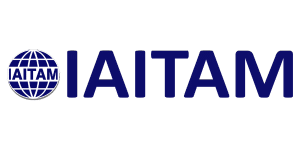vITAD: The Evolution of IT Asset Disposition
The ITAD industry is evolving to include a new list of criteria and expectations to meet these needs with value-added IT asset disposition, or vITAD.

The ITAD landscape is changing. Traditionally, the core services of IT asset disposition have included logistics, data sanitization, remarketing, and recycling. However, as the digital landscape evolves and clients become more educated on the value proposition presented by ITAD providers, clients’ needs become more sophisticated and include new requirements such as legal hold monitoring and mobile asset reprovisioning. As a result, it is clear that the traditional ITAD services are no longer enough.
The ITAD industry is evolving to include a new list of criteria and expectations to meet these needs with value-added IT asset disposition, or vITAD, services, in addition to the core ITAD service offerings. The vITAD concept augments the traditional ITAD model with ERP integration, portal customization for asset tracking, asset redeployment, re-imaging, and ESG reporting.
This industry change stems from several factors. First, the pandemic changed the business world and created a new industry requirement: such as support for remote workers. Many businesses went fully remote, and ITAD enterprises had to adjust business strategies to accommodate the new normal. Today, remote working continues to be the preferred method of work for many organizations, which means HOBI and other ITAD companies must integrate support for remote workers into the new ITAD model.
As clients and supporting organizations become more knowledgeable about the industry, their requirements become more complex. vITAD allows businesses and organizations to provide substantial benefits and increase customer satisfaction by absorbing operations that were traditionally only supported by the internal IT team or outsourced service providers. Additionally, ESG reporting is a vITAD service providing multiple levels of transparency and accountability.
Though not a new concept, ESG reporting is now a priority among investors when searching for a reputable company in which to invest. As one of the new industry criteria, ESG consists of three focus points regarding how well a company performs concerning environmental, social, and governance issues. ESG reporting represents a company’s policies on each focus area and provides stakeholders with information such as supply chain issues, risk management, and employee health and safety data that was not previously accessible.
Among many others, these new vITAD criteria represent a significant change in industry standards as the digital landscape continues to evolve and more businesses strive to reduce their carbon footprint.
